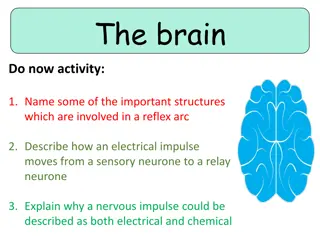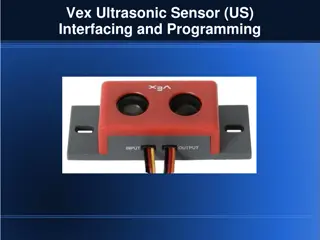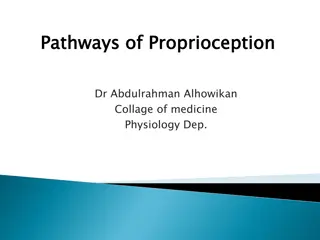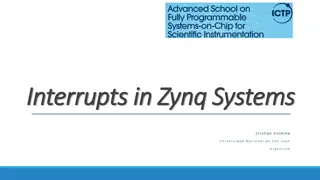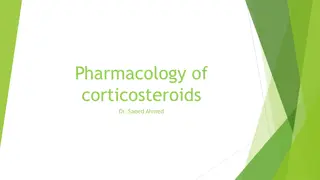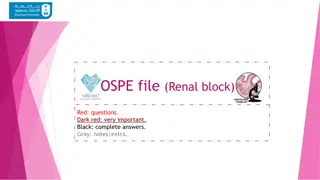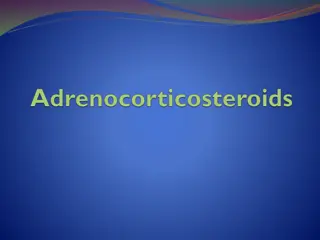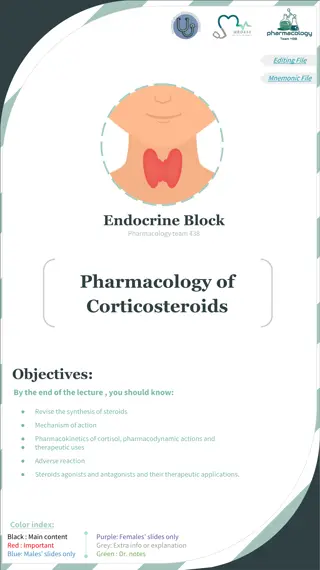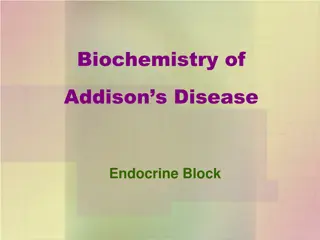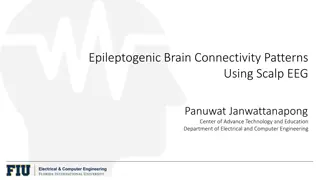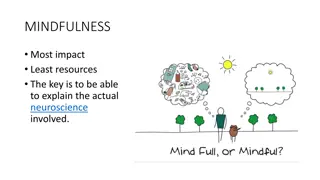Comprehensive Guide to vUWS Orientation for WSU Staff and Students
Explore this comprehensive guide covering how to access vUWS, navigating your vUWS site, Cortex template, managing the Content Repository, Grade Centre overview, and other tools available. Learn how to request a new vUWS site, add users, enter edit mode, student preview, and more. Enhance your under
3 views • 22 slides
best seo service in chennai provided by cortex media marketing in chennai
Looking for the Best SEO Company in Chennai? Cortex Media Marketing Has You Covered! If you're on the hunt for the best SEO company in Chennai, look no further! I've recently had an amazing experience with Cortex Media Marketing, and I can't recommend them enough. Their team is incredibly knowledgea
5 views • 7 slides
Adrenal Gland
This content delves into the detailed structure and function of the adrenal gland, focusing on the differentiation between the cortex and medulla, the histological features of each zone, and the hormones produced. From the distinction of various cortical layers to the role of chromaffin cells in the
0 views • 8 slides
Explore the Structures and Functions of the Brain
Delve into the intricate world of the brain, learning about important structures like the hypothalamus and cerebral cortex. Discover how electrical impulses move through neurons and understand the dual nature of nervous impulses. Engage in activities to map brain functions and test your knowledge wi
1 views • 23 slides
Mitotane 500 mg – The Future of Adrenal Cortex Cancer Treatment in India
Mitotane 500 mg represents a promising advancement in the treatment of adrenal cortex cancer in India. Known for its targeted approach, Mitotane effectively disrupts adrenal cancer cell function and growth. Its use offers hope for improved survival rates and better quality of life for patients. As a
0 views • 3 slides
Vex Ultrasonic Sensor Interfacing and Programming Guide
Understand how to interface and program a Vex Ultrasonic Sensor, which utilizes high-frequency sound waves to measure distances. Learn the proper connections to the controller and explore the programming statements for initiating and reading sensor values. Delve into configuring the Cortex Controlle
0 views • 8 slides
Understanding the Hair Growth Cycle and Structure
Hair is a protein filament that grows from follicles in the skin, playing essential roles in thermal regulation, protection, and facilitating perspiration evaporation. The hair consists of layers like the medulla, cortex, and cuticle, each with specific functions. Hair growth follows a cyclic proces
4 views • 23 slides
Understanding the Olfactory and Gustatory Systems
The olfactory sensory system is unique with direct relay to the cerebral cortex, ipsilateral representation, and the ability for regeneration. It is crucial for our sense of smell and emotional responses to odors. The gustatory area, responsible for taste perception, is closely related to the insula
0 views • 9 slides
Exploring Influences on Consciousness Through Neocortical Interactions
Delve into the intriguing realm of consciousness with Lester Ingber's research on the influences stemming from multiple scales of neocortical interactions. The investigations cover various aspects such as mind over matter, recursive interactions, neuronal scales in the neocortex, and statistical mec
1 views • 41 slides
Understanding the Anatomy of the Cerebellum: External and Internal Features
Explore the intricate details of the cerebellum with Prof. Ahmed Fathalla Ibrahim. Learn about the external features, anatomical subdivisions, internal structure, and nuclei of the cerebellum. Understand its origin, position in the brainstem, and connections to the brainstem. Gain insights into the
1 views • 26 slides
Understanding the Structure and Function of the Cerebrum
Dive into the intricate details of the cerebrum, the largest part of the forebrain. Explore its parts including the cortex, medulla, basal ganglia, and lateral ventricle. Learn about the lobes, important sulci, and gyri. Understand the types of fibers in the cerebral medulla and their functions. Unr
1 views • 20 slides
Understanding Electromyography (EMG) and Motor Neurons
Electromyography (EMG) is an electrodiagnostic technique used to evaluate muscle health by measuring electrical activity. EMG measures muscle response to nerve signals, displayed as waves on an oscilloscope. Motor neurons transmit signals from the brain to muscles, enabling movement. Upper motor neu
2 views • 8 slides
Unlocking the Power of the Human Brain: Insights from 11th ICPAR Annual Training Conference
Delve into the intricacies of the human brain at the upcoming 11th ICPAR Annual Training Conference themed around "Brain Power to Embrace Change and Emotional Stability." Explore the control center of our minds, the cerebral cortex, the limbic system, and the role of neurons in conscious mental reac
0 views • 57 slides
Understanding Proprioception Pathways in Physiology
This information delves into the intricate pathways of proprioception, focusing on the somatotopic organization of ascending sensory pathways, types of receptors involved, dorsal column tracts like gracilus and cuneatus, spinocerebellar tracts, and the role of the cerebral cortex in perceiving propr
0 views • 22 slides
Understanding Processor Interrupts and Exception Handling in Zynq Systems
Learn about interrupts, exceptions, and their handling in Zynq Systems. Explore concepts like interrupt sources, Cortex-A9 processor interrupts, interrupt terminology, and the difference between pooling and hardware interrupts. Gain insights into interrupt service routines, interrupt pins, interrupt
0 views • 60 slides
Understanding Pharmacology of Corticosteroids by Dr. Saeed Ahmed
Corticosteroids are steroid hormones produced by the adrenal cortex, classified into glucocorticoids and mineralocorticoids. Glucocorticoids have diverse effects on metabolism, immune responses, and inflammation, whereas mineralocorticoids regulate electrolyte balance. Mechanistically, corticosteroi
1 views • 32 slides
Understanding Adrenal Androgens and Their Role in the Endocrine System
Explore the significance of adrenal androgens in the endocrine system, including their production, function, and impact on male and female physiology. Learn about conditions like adrenogenital syndrome and the crucial role of adrenal cortex in hormone synthesis.
0 views • 14 slides
Histology of the Renal System for OSPE Exam Preparation
This comprehensive OSPE file for renal block covers key structures of the kidney including the cortex, juxtaglomerular apparatus, renal corpuscle, and kidney medulla. It provides detailed identification of structures, labeling of components, and differentiation between tubules. Helpful images and de
0 views • 11 slides
Understanding the Physical Structure of Wool Fiber
Wool is a natural protein fiber with a unique structure composed of a cortex and cuticle, lacking a medulla. Its physical structure includes the cuticle as the outer protective layer, cortex with corticular cells, cell membrane complex, macro-fibrils, matrix, micro-fibrils, and helical coils. The st
1 views • 17 slides
Understanding the Role of Corticosteroids in Adrenal Function
The adrenal gland consists of the cortex and the medulla, each responsible for secreting different hormones. The cortex produces glucocorticoids, mineralocorticoids, and adrenal androgens, while the medulla secretes catecholamines. Corticosteroids play a crucial role in regulating metabolism, stress
0 views • 18 slides
Pharmacology of Corticosteroids: Synthesis, Mechanism of Action, and Therapeutic Uses
Corticosteroids are steroid hormones produced by the adrenal cortex, divided into glucocorticoids and mineralocorticoids. They play crucial roles in metabolism, immunity, inflammation, and electrolyte balance. Glucocorticoids like cortisol stimulate gluconeogenesis, influence glucose levels, and hav
0 views • 9 slides
Introduction to GOTO Beacon Programming for Engineering Students
Explore the GOTO Beacon programming concepts introduced in an Engineering course. Learn about implementing the GOTO BEACON program to find specific frequencies and control a robot using Cortex technology. Dive into the main body of the program, including functions like Read_PD(), find_max(), and mov
0 views • 22 slides
Understanding the Biochemistry of Addison's Disease in the Endocrine System
Addison's Disease, a primary adrenocortical hypofunction, involves the adrenal gland's cortex and its hormone synthesis. The condition affects aldosterone and cortisol production, impacting electrolyte balance and blood pressure regulation. Learn about the anatomical and histological aspects of the
0 views • 21 slides
Microscopic Structure and Histology of Kidney and Urinary Tract
Explore the intricate details of kidney anatomy, nephron structure, glomerular filtration barrier, and the histology of renal cortex and medulla, renal corpuscle, proximal and distal tubules, juxtaglomerular apparatus, as well as the urinary bladder and urethra in both male and female. Delve into th
0 views • 17 slides
Exploring the Brain and Conflict Resolution in Recovery
Delve into the complexities of the brain with a focus on the limbic system and cortex. Learn how the brain reacts in conflict situations and discover strategies for conflict resolution in recovery. Gain insights into the functions of the limbic system, located at the center of the brain, and the cor
0 views • 25 slides
Unsupervised Learning: Complexity and Challenges
Explore the complexities and challenges of unsupervised learning, diving into approaches like clustering and model fitting. Discover meta-algorithms like PCA, k-means, and EM, and delve into mixture models, independent component analysis, and more. Uncover the excitement of machine learning for the
0 views • 71 slides
Robotics Education & Competition Foundation EDR Kit Components
Explore the Robotics Education & Competition Foundation EDR Kit components including Cortex controller, motors, sensors, electronics, and control systems. Get tips and tricks for assembling the kit, firmware software updates, and step-by-step guides for setting up the VEX EDR system. Enhance your kn
0 views • 18 slides
Understanding How the Ear Works and Common Issues
The ear functions for hearing and balance, with the cochlea for hearing and semicircular canals for balance. Sound waves are funneled through the pinna, vibrate the eardrum, pass through the ossicles, and move fluid in the inner ear to transmit nerve impulses. Important terms include auditory cortex
0 views • 19 slides
Female Ovary Histology and Function Overview
The female reproductive organ, the ovary, plays crucial roles in oocyte development, hormone production, and ovulation. Structurally, ovaries have a cortex and medulla, with follicles containing oocytes and surrounding cells. The primary follicle marks the onset of follicular maturation, leading to
0 views • 12 slides
Understanding Antiemetic Screening Models in Pharmaceutical Science
Explore the fascinating world of antiemetic screening models in pharmaceutical science, covering topics such as the pathogenesis of vomiting, choice of emetogens, commonly used animals, parameters assessed, screening models, and more. Learn about drug-induced emesis models and the critical parameter
0 views • 25 slides
Neuromorphic Computing: Bridging the Gap Between Silicon and Human Cognition
This research delves into neuromorphic computing, a cutting-edge field that merges principles from biology and silicon technology to advance cognitive processing. The study explores top-down approaches, drawing inspiration from the auditory cortex for DNS, and bottom-up strategies to enhance CPU arc
0 views • 17 slides
Understanding Social Neuroscience: Exploring Human Sociality and Well-Being
Social neuroscience delves into how the brain processes social interactions and their impact on human well-being. It focuses on the interconnectedness between social connections and overall life satisfaction, suggesting that humans are inherently social beings with a strong need for social belonging
2 views • 21 slides
Auditory Pathway in the Brain: Nuclei, Pathways, and Connections
Explore the anatomy of the 8th cranial nerves, specifically the auditory pathway in the brain. Learn about the nuclei related to vestibular and cochlear nerves, their types and locations, along with descriptions of the vestibular and auditory pathways. Discover the primary auditory cortex, medial ge
0 views • 23 slides
ARM Cortex-M Interrupt and Exception Programming Overview
Explore the fundamentals of interrupts and exceptions programming in ARM Cortex-M microcontrollers. Topics include interrupt handling mechanisms, interrupt vector table, interrupt priorities, control registers, and transitioning from reset to boot programs. Gain insights into the privileged executio
0 views • 31 slides
Uncovering Epileptogenic Brain Connectivity Patterns Through Scalp EEG
Epilepsy is a common neurological disorder characterized by unprovoked seizures, affecting a significant portion of the population. Enhancing the diagnosis and prediction of seizures through EEG recordings can improve therapeutic strategies for epilepsy patients. Functional connectivity analysis in
0 views • 21 slides
Understanding Trauma and Its Effects on the Brain
Trauma is not just an event but a response that overwhelms individuals physically and psychologically. The neurobiological impact of trauma, such as alterations in physiology, cognition, and memory, can be profound. This content delves into how traumatic experiences can affect brain functions, speci
0 views • 16 slides
Unleashing the Power of Mindfulness for Cognitive Enhancement
Explore the fascinating realm of mindfulness and its remarkable impact on cognitive function. Delve into the neuroscience behind mindfulness practice, uncovering how it affects brain regions like the medial prefrontal cortex and the hippocampus. Discover the two distinct networks in the brain, the D
0 views • 13 slides
Maize Root Anatomy: An In-depth Examination
Maize root anatomy involves various specialized structures such as the epidermis, cortex, endodermis, pericycle, and vascular tissue. The epidermis is crucial for absorption and protection, while the cortex plays a role in providing support and storage. The endodermis acts as a barrier and regulates
0 views • 9 slides
Understanding Memory Allocation in the Hippocampus and Cortex
The paper discusses the role of the hippocampus as a stable memory allocator for the cortex, emphasizing the process of memory allocation, chunking, and indexing. It delves into the requirements for stable memory allocation, chunking in a neuroidal model, and addresses problems related to memory for
0 views • 21 slides
Understanding Addiction and Recovery: A Comprehensive Guide for Patients and Families
This psycho-education session delves into the concept of addiction, emphasizing that it is a medical disorder rather than a moral failing. It explores the components of addiction development, such as the prefrontal cortex and limbic system, and identifies the cognitive and conditioning processes inv
0 views • 20 slides



